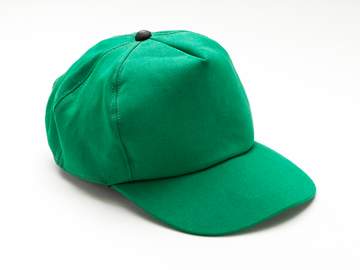
Cap has functioned as a verb in English since the 15th century: mountains can be capped in snow, teeth can be capped with crowns, and pens and heads can be capped with, well, caps. In each of these cases cap has to do with a cover or top. But the verb cap can also be used to mean something else entirely: to lie, to boast, or to front.
I ain’t going to say I’m the greatest. I’m amongst the greatest. I was cappin’ on Twitter. — Maxo Kream, quoted in Pitchfork, 12 Feb. 2018
Tyrese Haliburton, the team’s prized wing and sender of the text, had built a reputation as a prankster. “Everybody’s like, ‘Oh, you’re lying, you cappin’,’” [basketball player De’Aaron] Fox says. A few minutes later, the jokes were over. “Then Woj tweeted it, and we were like ‘Wow.’” — Logan Murdock, The Ringer, 23 Mar. 2022
Lawyer in Young Thug trial tells the judge he’s “cappin'” — (headline) Hip-hopvibe.com, 17 Apr. 2023
Though often mistaken for new internet slang, capping (or cappin’) has been used in African American English for decades, and possibly much longer. In a Genius video featuring interviews with multiple rappers as well as a linguist, journalist Jacques Morel details the history of the term in rap music and dates the first mentions of capping in hip-hop to the mid-1980s and the phrase “high capping” to the end of that decade. The phrase no cap appears to be a newer development, becoming popularized in the 2000s and the 2010s with songs like “No Cap” by Atlanta rappers Future and Young Thug, and “Deadz” by Migos and 2 Chainz. In “Deadz,” Migos can be heard rapping the lyrics “no for real, no cap.” In Morel’s video, Migos rapper Offset defines cap as “bullshit” and “lies,” and no cap as “I’m dead serious.” (No cap is today sometimes rendered in emojis as 🚫🧢 or 🙅🏽🧢.) Willie D of Geto Boys glosses capping with multiple meanings ranging from the act of insulting someone to bragging or fronting.
(Note that a similar phrase is also used among gamers on the popular livestreaming platform Twitch. Kapp, which is short for kappa, refers to an emote, a particular style of an emoticon, used on the platform to denote sarcasm. The emote gets its name from the kappa water spirit of Japanese folklore. Gamers use “no kapp” to express that they are telling the truth; they’re not being sarcastic. Although the phrases have overlap in meaning, the two are in fact unrelated.)
As for the origin of this use of cap, various slang dictionaries offer insight. Clarence Major’s 1994 Juba to Jive: A Dictionary of African-American Slang includes an entry for cap on defined as “to verbally put down someone; to censure; to insult,” as well as an entry for the noun capping meaning “ritual of verbal insult; besting someone.” Geneva Smitherman’s 1994 Black Talk: Words and Phrases from the Hood to the Amen Corner defines cap as “to signify on somebody, to dis a person,” and reports that this “can be done either seriously and thus not necessarily to insult someone.” (Signifying is an African American linguistic practice involving the indirect expression of ideas especially through playful gibes and clever often preposterous put-downs; it’s closely related to, and is sometimes considered an example of, the dozens, a ritualized African American word game that consists of exchanging insults usually about the members of an opponent's family.)
Green’s Dictionary of Slang also includes several definitions for the verb cap. The meanings date from 1902-2014, and several echo African American English meanings covered by Major and Smitherman: “to brag about; to aggrandize,” “to lie,” “to insult someone esp. by disparaging their family,” “to surpass, to outdo.” Only the “insult” and “outdo” uses are labeled African American English, and Green’s earliest cap meaning, “to make a smart rejoinder,” is from an Australian source.
Going further back still, British lexicographer Francis Grose’s 1811 Dictionary of the Vulgar Tongue includes an entry for cap defined as “to take one’s oath,” with the example “I will cap downright,” glossed as “I will swear home.” In a separate entry Grose defines another word cap as “to support another’s assertion or tale. To assist a man in cheating.” Eric Partridge’s A Dictionary of Slang and Unconventional English (8th edition, 1984) includes the “to take an oath” meaning, citing Grose, and also reports cap as meaning “to corroborate the assertions of; put a favourable construction on the actions of.” Though these meanings are not the meanings we’re noting in African American English today, there may in fact be a semantic throughline.
Origins aside, there is no question that cap as it exists in present-day US English is very much a product of African American English. While these uses of cap are becoming more established in the lexicon, they’re not quite ready for the dictionary yet. We’ll continue to gather data and keep an eye out for the word in publications across the web. No cap.




